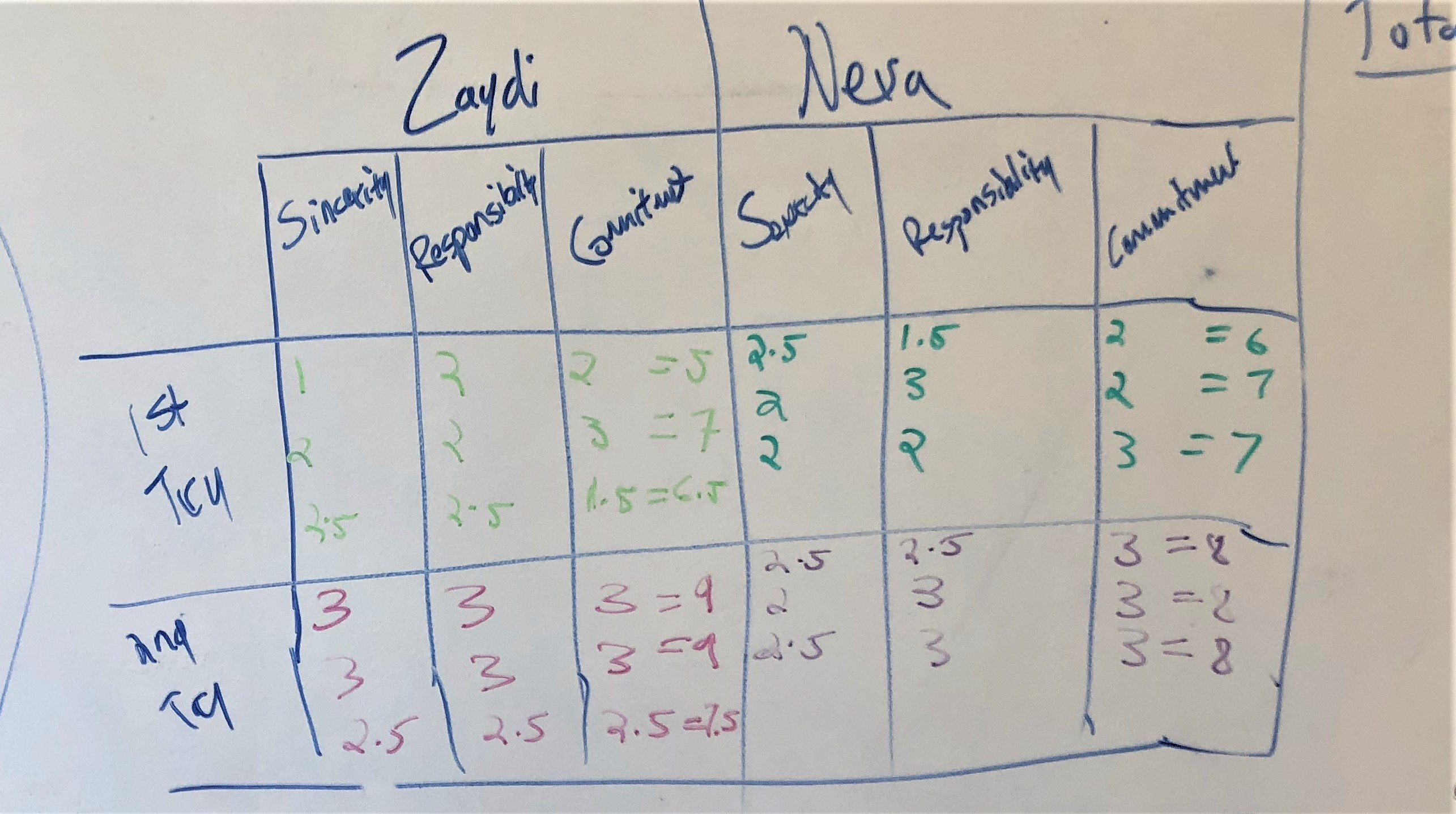 What happens when Acton learners don’t live up to their own commitments? Elementary learners practice a special tool for self-governance in the studio: an apology.
What happens when Acton learners don’t live up to their own commitments? Elementary learners practice a special tool for self-governance in the studio: an apology.
As a consequence for an incident of misrepresented work (a violation of their contract), two learners were given the choice: deliver an “excellent” apology, as judged by their peers, or forfeit the coveted “scholars’ choice” free time on Friday.
What makes an excellent apology? The learners were given a rubric of three factors: sincerity “be honest and genuine”; responsibility “take responsibility and don’t shift blame to others”; and commitment “promise to do better and commit to uphold the contract moving forward.” Peers rated each apology on a scale of 1 to 3 scale for each factor. Learners would need to earn a total of 24 points (an average 8 out 9 from each learner) to earn back their scholars’ choice time — a very high bar.
On the first try, one learner received a 18.5 apology and the other received a 20.5. Not enough! Do you want to try again? Yes.
So the learners coached each other, offering “warm, cool, warm” feedback for how they could do better. One learner suggested, “You’ve got to be honest and clean about exactly what happened.” Another learner suggested they be more specific on their commitment, “Which provision of the contract will you do better on?”
After a 5 minute hundle to practice, the learners tried again… and this time, they earned 25.5 and 24.5, improving by 7 and 4 points respectively! Everyone enjoyed a well-earned afternoon of scholars’ choice.
In contrast to the political non-apology apology — here in the heart of the town that invented it — it’s nice to see Acton learners hold themselves to a higher bar for an “honest and clean” apology.